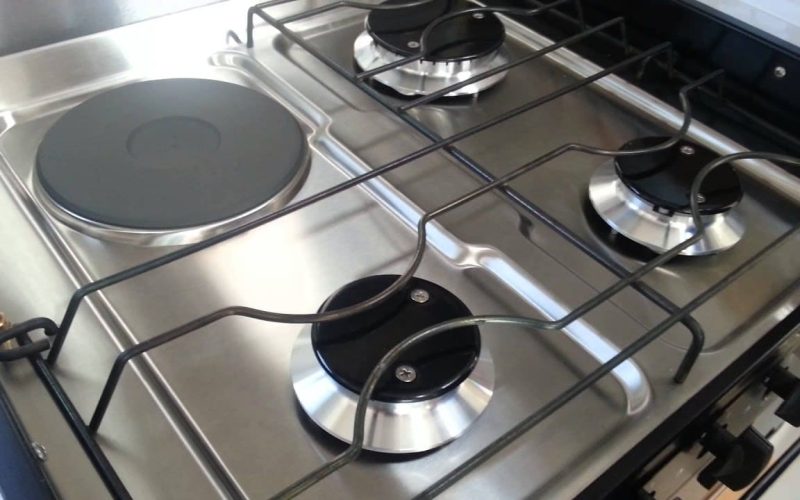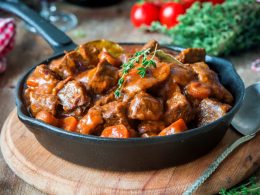Not sure if you want an electric, induction, dual-fuel, or gas model for a new freestanding cooker?
There are advantages and disadvantages to each form, so which one is right for you depends on how you want to cook and how much you need to spend.
We clarify the main advantages and disadvantages of each type of cooker in this article to help you decide which is best for you.
Gas vs electric cookers: which are cheaper to run?
It is possible that your choice of gas or electric cooker would be affected by your past cooking experience, what your kitchen has already been set up for, and your personal cooking preferences.
You will use fewer units of energy if you use an electric cooker, but since electricity costs more than gas per unit, it would still eventually cost you more.
Our studies have shown that if you operate your cooker for an average of 5 hours per week, you will pay an average of only $22.47 per year for a gas cooker and about $52.87 for an electric, electric induction or dual-fuel cooker.
All-gas versions are typically a little cheaper when it comes to purchasing the cooker.
Gas vs electric cookers: advantages and disadvantages
Of course, the cost of these cookers isn’t everything. When it comes to cooking and preparing food, both gas and electric cookers have their advantages and disadvantages. Below, you can see the primary differences:
Advantages of gas cookers
- Hobs appear to be better at simmering: Gas cookers provide instant and easy-to-control heat that seems to spread uniformly across the base of a pan, which means less time stirring your dinner to cook it properly.
- Running expenses are lower: Gas is cheaper than electricity, so if you prepare a meal with this fuel, you’re likely to save yourself a little cash
Disadvantages of gas cookers
- Less-even distribution of heat in the oven: You can typically not find fans in gas ovens, which makes it more difficult for the heat to spread uniformly across the cavity. This implies that at the top, a gas oven would typically be warmer than at the bottom. A few people like this temperature gradation, which can be used to your benefit while simultaneously cooking multiple dishes, but it can make it challenging to get batches baked evenly.
- Gas cookers can be slow to heat large quantities: Gas hobs are typically slower to heat large pans of food than electric hobs, particularly electric induction hobs. You may find yourself sticking around to get your dinner going for a little longer.
- Cleaning can be complicated: Gas hobs are more complicated to clean with their high burners and pan supports than flat ceramic or induction hobs since there are more debris traps for food to get trapped in.
- Installation: You will need to employ the services of a certified professional to install a gas or dual-fuel cooker, which may also increase the cost, as with any gas-powered appliance.
Advantages of electric cookers
- The more-even temperature of the oven: Electric ovens tend to have a more even distribution of heat in the oven cavity, as most fans help pass the hot air around. This means that consistent outcomes, particularly when baking larger quantities, are easier to achieve.
- Multifunction oven: There is a multifunction oven for certain electric cookers. This implies that you can cook simultaneously using various heating features. For instance, at the same time, you can use the grill and fan, which can work well when a less-fierce heat is needed, such as grilling a thicker piece of meat.
- Easy-to-clean hobs: Whether it is electrical ceramic or electrical induction, the cooking area of the hob is flat. This makes washing less tedious than the burners and metal pan support on a gas hob. If your hob has touch controls instead of dials, there is even less space to get trapped by dirt.
- Induction cooking: You can get quicker cooking times if you go for a model with an electric induction hob-induction hobs are swift to heat the contents of a pot. They are typically better at simmering at low temperatures. While electric ceramic hobs are not quite able to compete, they are still generally faster to prepare food, unlike gas hobs.
- Better grilling: Electric grills appear to do a better job of uniformly simmering food than gas grills. Not all electric grill is perfect, but they seem to outshine gas models generally.
Disadvantages of electric cookers
- Higher operating costs: It costs more to power electric cookers than gas cookers, so your annual energy bill will be marginally higher than a gas cooker would be.
- The hobs remain warm after power is shut off: Electric ceramic hobs appear to retain heat longer than induction or gas hobs. So if you forget to remove your pan from the cooker after you’ve turned the power off it can keep cooking for a while. They also heat up very slowly.
Dual-fuel cookers
Freestanding dual-fuel cookers are less popular and appear to be a little more costly than other alternatives, but some people like the versatility they provide.
You get the rapid gas heat control for the hob, but also the versatility of electric heat for more-even heating in the oven and grill.









